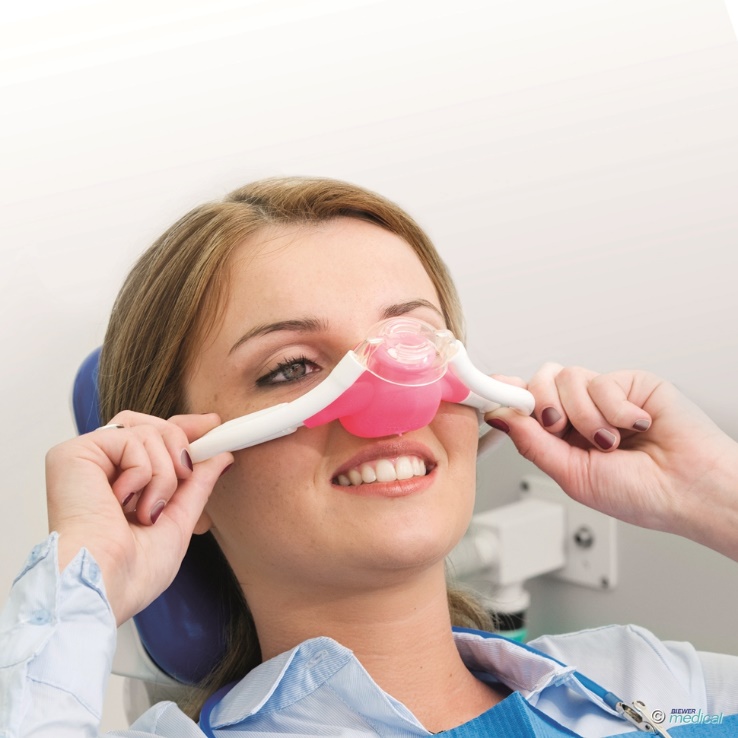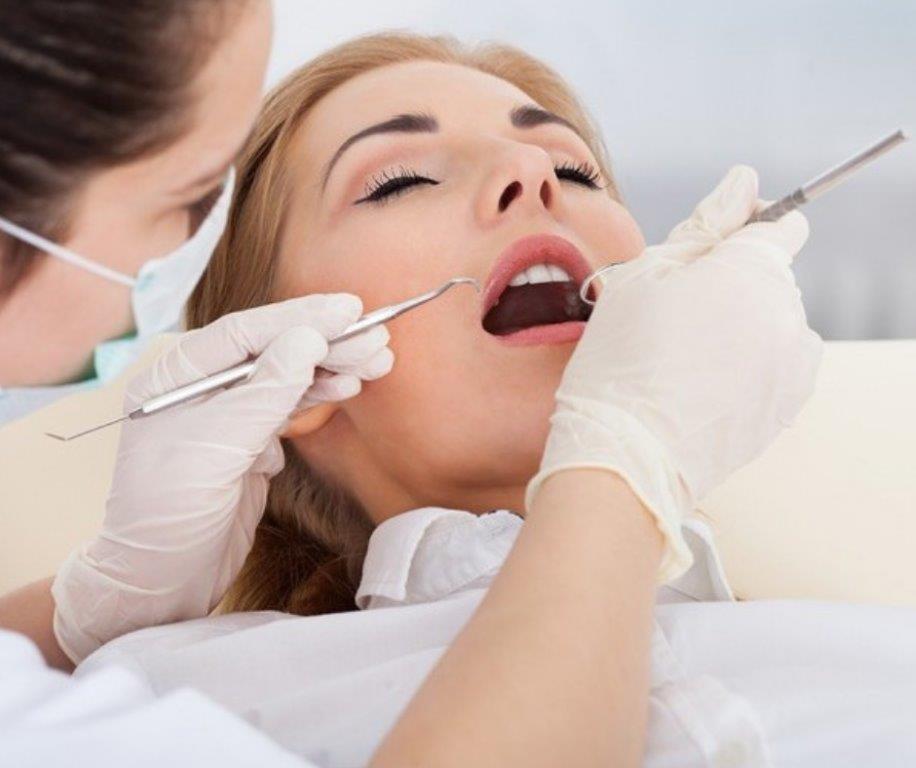SLEEP DENTISTRY – SEDATION
Are You Afraid of the Dentist?

You’re Not Alone!
Many people experience dental anxiety. In fact, dental fear is cited as the number one reason why people avoid seeing the dentist. It is estimated that as many as 75% of US adults experience some degree of dental fear, from mild to severe. At the extreme, a person who experiences dental phobia may never see the dentist. Others may force themselves to go, but the visit is clouded in anxiety.
People who are fearful of dental care often fall into a “cycle of avoidance,” in which they avoid care until a dental emergency requiring invasive treatment occurs. This, in turn, reinforces their fear of dentistry. But it doesn’t have to be this way. New treatment options are available for people who experience any level of dental anxiety.
Watch how it works
BENEFITS OF SEDATION
Sedation dentistry can mean any type of sedative given by pill, elixir, intravenous, inhaled or otherwise, that relaxes patients for dental procedures.

Inhalation Sedation
One common anxiety-reducing medication used in dentistry is nitrous oxide (laughing gas), which is inhaled through a small mask worn on the nose and causes feelings of relaxation and dissociation. The use of laughing gas has successfully helped many anxious patients relax.
Laughing gas is one option that we offer to allow you more comfort during certain procedures, but it’s not intended to put you to sleep. You’ll still be able to hear and respond to directions, but don’t expect to be fully lucid. While inhaling laughing gas, you may experience a range of feeling from heightened sense of relaxation to a full-body euphoria. We are able to adjust your medication level to reach an optimal point of relaxation for you. The effects of the gas wear off quickly enough to driveyourself home after your procedures.
Oral Sedation
Another common method to reduce dental fear and anxiety is to use oral sedation pills. Anti-anxiety medication such as Valium and Halcion bind with the receptors in your brain that are responsible for fear to help you remain calm minor amnesia, and tingling sensations.
While these sedatives should help you feel calm and sometimes drowsy during dental treatment, you’ll still be conscious and able to communicate with the dental staff. Due to the lasting effects of oral sedation, you’ll need someone to drive you home after the appointment.


Oral Sedation
Another common method to reduce dental fear and anxiety is to use oral sedation pills. Anti-anxiety medication such as Valium and Halcion bind with the receptors in your brain that are responsible for fear to help you remain calm minor amnesia, and tingling sensations.
While these sedatives should help you feel calm and sometimes drowsy during dental treatment, you’ll still be conscious and able to communicate with the dental staff. Due to the lasting effects of oral sedation, you’ll need someone to drive you home after the appointment.

IV Sedation
Intravenous (IV) sedation is administered directly into your arm or hand. It’s often referred to as “conscious sedation” as opposed to general anesthesia. With IV sedation, you will breath on your own and are still respond to your dentist’s prompts. Under a general anesthetic, you are more deeply sedated, while your breathing and heart rate are monitored. You may need assistance with your breathing and are not responsive to verbal or physical prompts.
During the process of IV Sedation, your anesthesia provider administers and monitors intravenous anesthesia throughout your procedure. This allows our dental team to focus on your treatment while you feel deeply relaxed and comfortable. IV sedation is more predictable than oral sedation for dentistry.
Just like with oral sedation, you’ll need to have a driver ready to escort you home after the procedure as well as to monitor you, as some effects of the medication may linger for the remainder of the day.
Sleep Dentistry – General Anesthesia
You sleep – we work! Under general anesthesia, you will be completely asleep and pain free. Specially trained anesthesia professional (physician anesthesiologist, dentist anesthesiologist, or certified nurse anesthetist) will administer medications and monitor patient while a separate dentist performs the dental procedure or surgery.
Our patients don’t need to go to a hospital or a surgery center for the anesthesia because our office is equipped to provide a quality of anesthesia services. The anesthesia providers from Apex Anesthesia are proficient in their specialty and do everything to keep patients safe while the dental treatment is performed. We are proud to partner with Apex Anesthesia because they have earned Accreditation by the Accreditation Association for Ambulatory Health Care (AAAHC). To achieve accreditation, Apex demonstrated compliance with national standards for health care quality and safety as well as commitment to providing the highest level of care in mobile anesthesia.
If you have any questions related to anesthesia services, please visit: ApexMobileGA.com for more information


Sleep Dentistry – General Anesthesia
You sleep – we work! Under general anesthesia, you will be completely asleep and pain free. Specially trained anesthesia professional (physician anesthesiologist, dentist anesthesiologist, or certified nurse anesthetist) will administer medications and monitor patient while a separate dentist performs the dental procedure or surgery.
Our patients don’t need to go to a hospital or a surgery center for the anesthesia because our office is equipped to provide a quality of anesthesia services. The anesthesia providers from Apex Anesthesia are proficient in their specialty and do everything to keep patients safe while the dental treatment is performed. We are proud to partner with Apex Anesthesia because they have earned Accreditation by the Accreditation Association for Ambulatory Health Care (AAAHC). To achieve accreditation, Apex demonstrated compliance with national standards for health care quality and safety as well as commitment to providing the highest level of care in mobile anesthesia.
If you have any questions related to anesthesia services, please visit: ApexMobileGA.com for more information
How Can a Dentist Anesthesiologist Help You and Your Loved Ones Receive Safe, Painless Dental Care?
Have a question or comment?
Fill out the Contact Us form and we will be in touch as soon as possible.
CONTACT INFORMATION
- Moses Lake Dental Group
- 825 E. Sharon Ave Moses Lake, WA 98837
- (509) 766-9030
- (509) 766-5624
- office@mldentalgroup.com
- Mon-Fri: 8AM – 5PM

